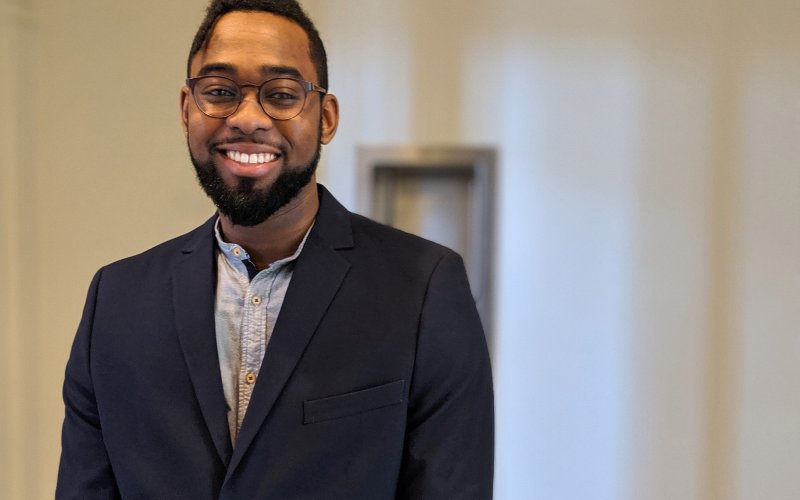What happens when contact tracers can't reach someone?

Chris Joseph began his work as a case investigator (contact tracer) while he was completing his MPH. Over a year later, now as an MPH graduate, he works as an information gatherer for Covid-19 response.
ALBANY, N.Y. (July 9, 2021) - Early in the pandemic, many people outside the public health field became familiar with the concept of contact tracing for the first time. Hundreds of thousands of people received calls from contact tracers who worked tirelessly in hopes of keeping Covid-19 from spreading to others. But what happens when a contact tracer doesn’t have the information to reach a person or an individual is hard-to-reach?
That’s where information gatherers like Chris Joseph come in.
Joseph works for the New York City Health + Hospitals Test and Trace Corp, a remote program serving all five boroughs of the city. He conducts background investigations through public databases and communicates with healthcare facilities that order Covid tests to obtain new contact information to provide to contact tracers, so that they can more easily contact individuals who might have been exposed. Joseph’s day begins with a large batch of hard-to-reach records that are assigned to him. He reviews each record and prior outreach attempts, verifies phone numbers and addresses on file, connects the records with others that may share the same contact information or household intake, and more.
“Every now and then I will look back at a record I completed to see how successful my chosen method was for the assigned contact tracer or community engagement specialist,” says Joseph. “When I see a note stating this individual was successfully contacted and informed of the appropriate isolation protocols as well as available resources, it means the world to me.”
At the start of the pandemic, Joseph originally worked as a case investigator (contact tracer), but soon switched to information gathering because he wanted to help with efforts to improve the program’s chances of successfully contacting cases.
“The experience can often times feel surreal,” he says. “Working on each record it can be hard to remember these are actual people with real-life concerns. Often, I am working on pediatric and adolescent records that trace back to a household of five or more individuals, and the emotional toll on the guardian must be intense.”
Joseph was one of several students from SPH who worked with the New York City Health + Hospitals Test and Trace Corp, and says the other students he worked with were indispensable sources of knowledge and encouragement.
“I don’t feel like my work is over,” Joseph says, expressing his desire to continue working with Covid-19 data. “Eventually, I’d like to serve the entire State of New York for Covid response.”


